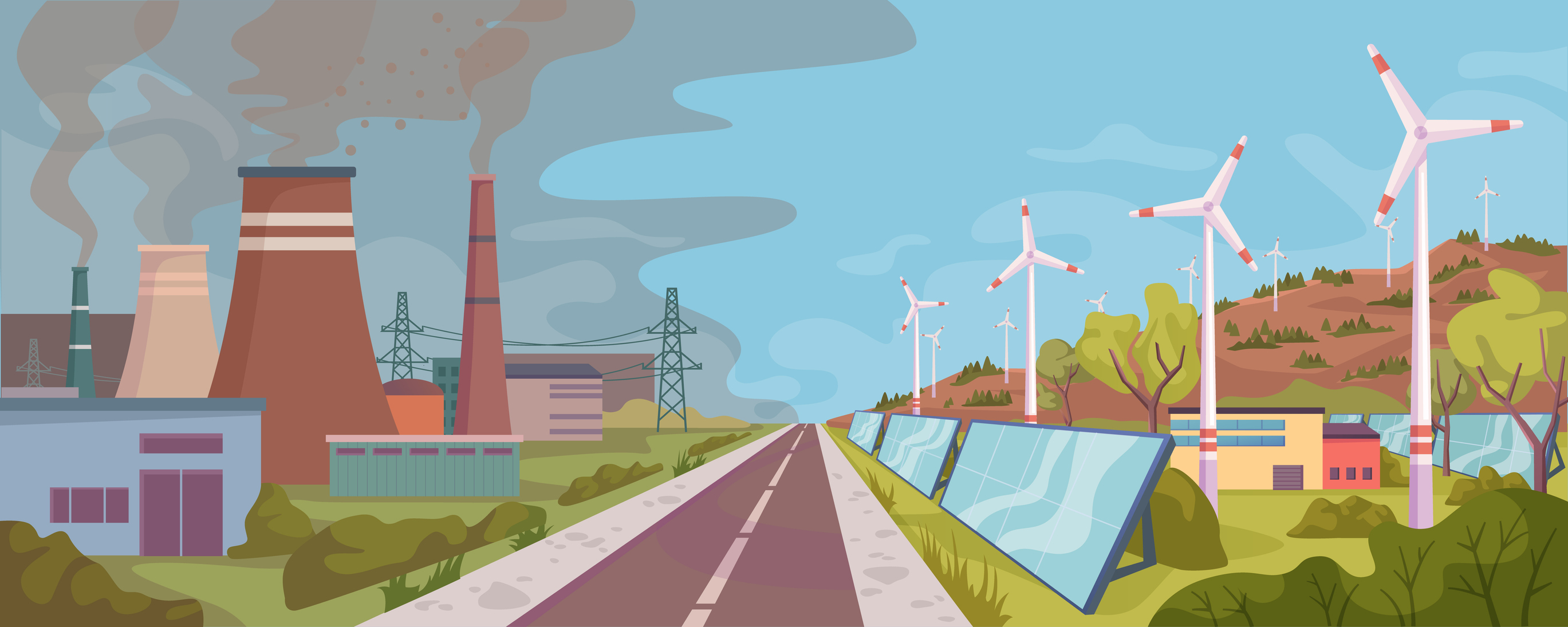News
Virginia leaves Regional Greenhouse Gas Initiative: What you need to know

With a 4-3 vote from the Air Pollution Control Board, Virginia begins the process to withdraw from a multistate carbon cap-and-trade program, walking back years of greenhouse gas and sustainable energy. Now the governor's office must review the proposed changes and then a finalized rule will be adopted to the state' register.
We sat down with Damian Pitt, Ph.D., an expert in sustainability-focused energy policy in Virginia and the Atlantic region. Pitt is associate professor of urban planning in the L. Douglas Wilder School of Government and Public Affairs and he serves as associate director of policy and community engagement for the Institute for Sustainable Energy and Environment.
Q: What is the significance of this repeal? How did the state air pollution control Board reach this decision?
A: The significance of this decision is that, by removing Virginia from the RGGI cap-and-trade program, we have lost one of the more important tools in our toolbox for reducing greenhouse gas emissions to mitigate the future impacts of climate change. Furthermore, by leaving RGGI, Virginia is walking away from at least $2 billion in future revenue, beyond the hundreds of millions that have already been generated through the program's carbon allowance auctions. By law, the vast majority of this revenue is divided roughly evenly between flood mitigation measures and energy efficiency improvements for low-income households.
According to my research, the revenue that Virginia could generate by staying in RGGI through 2030 would support energy efficiency upgrades for over 100,000 low-income households. We have a major energy burden problem in this state, with hundreds of thousands of households across all parts of the state spending exorbitant percentages of their incomes on household energy costs. By withdrawing from RGGI, we are taking away revenue that could have provided meaningful assistance to those Virginia families.
"It is clear that the states, regions and nations that embrace a clean energy transition now will enjoy stronger economies, cleaner environments and higher quality of life in the decades to come, compared to those that double-down on the status quo of fossil-fuel dependency." – Damian Pitt
Q: Have you seen factual data that confirms the assumptions on electrical generation and CO2 emissions?
A: I don't think the technical arguments presented to justify Virginia's withdrawal from RGGI merit much scrutiny, as this has been an entirely political debate from the outset. First, legislation to prohibit Virginia from joining RGGI was passed on an entirely party-line vote in 2019. After the Democrats took control of the General Assembly later that year, the ensuing legislation to join RGGI also passed on almost entirely party-line votes.
Governor Youngkin frequently cited his opposition to RGGI on the campaign trail, and it was his four Air Pollution Control Board appointees who cast the four votes yesterday to withdraw from RGGI. Additionally, if the anti-RGGI interests truly believe that the problem with RGGI is its ineffectiveness at reducing air pollution, then what solutions do they support that would be more effective? Unfortunately, actions that would reduce air pollution — supporting renewable energy, energy efficiency, etc. — have been highly partisan for quite some time, and the debate over RGGI is just the most recent example of that.
Q: Do you see any common policy ground of compromise as to how we can address sustainable energy in Virginia going forward in this current environment?
A: Unfortunately, no. As long as clean energy and climate change mitigation remain partisan, culture-war issues, I don't see much grounds for compromise. This isn't a debate about finding the most effective method of mitigating future climate change, it's a power struggle over whether addressing climate change is something we're willing to do at all.
Q: What future trends do you see this as creating in the short and long term for Virginia and the region?
A: That's a good question. The good news is that renewables and energy efficiency remain the most cost-effective and easily scalable methods of addressing our future energy demands. Furthermore, we still have strong legislation in the form of the Virginia Clean Economy Act that still requires our major electric utilities to achieve 100% clean energy over the next 20-25 years.
However, leaving RGGI removes one of the mechanisms that would facilitate achieving that goal, and again, it takes away an abundant revenue source that we could be using to both reduce future energy consumption and adapt to the coming impacts of climate change. As to whether Virginia remains the strong leader in clean energy policy that it became in 2020-2021, or reverts back to a more fossil-fuel dependent future, the results of the 2023 and 2025 statewide elections will determine that.
Q: What are your thoughts on a combined energy policy, "an all-of-the-above energy plan that includes natural gas, nuclear, renewables and the exploration of emerging sources to satisfy the growing needs of Commonwealth residents and businesses?"
A: Typically, saying that one supports an "all of the above" approach means that they support retaining the status quo, which means resigning ourselves to increasing energy costs, missing out on the economic development opportunities presented by the clean energy transition, and either ignoring or accepting the coming impacts of climate change. It is clear that the states, regions and nations that embrace a clean energy transition now will enjoy stronger economies, cleaner environments and higher quality of life in the decades to come, compared to those that double-down on the status quo of fossil-fuel dependency.
As to some of the specifics in this "all of the above" approach, I do think that some of the emerging sources that Governor Youngkin’s administration supports, such as green hydrogen, could be an important element of a clean energy economy in future decades. However, those emerging technologies, such as small modular nuclear reactors, are decades away from being a meaningful source of our energy supply. Supporting those future technologies should be considered a complement to investing in solar, wind, efficiency and other clean energy technologies today, not an alternative to them.
Q: What is the impact of transparency with reductions in the regulatory process? "This standard regulatory process for removal from RGGI will provide stability and an orderly withdrawal which will provide greater regulatory certainty and help prevent market fluctuations impacting consumers."
A: I think that backing out of a program such as RGGI that has been proven effective, and which will likely result in an extended legal battle, is the opposite of providing regulatory certainty.
Again, as long as clean energy remains a partisan issue, subject to the whims of changing political leadership, then electric utilities and other energy providers will never have regulatory certainty.
